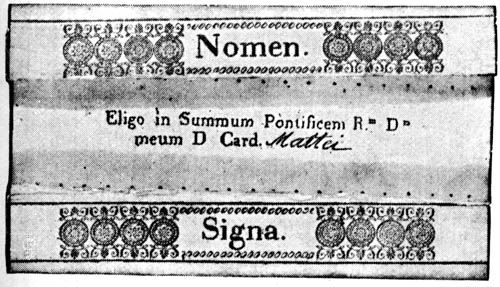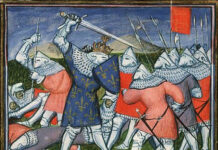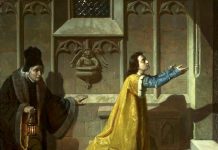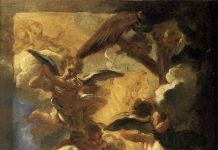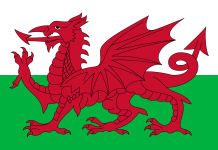Most of us have likely had humorous conversations regarding the need to study for an exam versus abandoning the outcome of said exam to Divine Providence. A similar sort of exchange may be found in a rather unusual source: The memoirs of Mother Pascalina Lehnert, long-time housekeeper of the Venerable Pope Pius XII. Mother Pascalina first entered the service of Pius XII in 1918 when the future pontiff, then Archbishop Eugenio Pacelli, was apostolic nuncio to Bavaria. She recalls the following episode from that time:
I remember well—it was back in Munich—how a young curate told the Nuncio that he had not found time to prepare his Sunday sermon and would have to rely on the Holy Spirit this time. His Excellency replied very sternly and seriously, “If you have not prepared your sermon, don’t go into the pulpit, either. That would be tempting God! Naturally the Holy Spirit helps, but only when we have done our share first. Anyway, the sermon isn’t until tomorrow, you still have the whole evening before you. Sacrifice a few hours of the night, God’s word is worth it!” So saying, he left the nonplussed priest standing. The next morning he went to the church himself in order to hear the sermon. The priest afterwards told me that he had worked on it until two in the morning—after such a lesson there was nothing else he could do—but that he had almost sweated blood when he saw His Excellency in the church.[1]
The moral of this entertaining story should be obvious. Holy trust in God is not laziness. We are called to use the resources God has placed at our disposal while, aware of our own inadequacies, humbly and joyfully commending all that we do to Him. As the future Pius XII said, God will help us “but only when we have done our share first.”
Of course, God is not bound by our own merits and efforts. He may choose, for example, to inspire me with the correct answers for an exam even if I refused to prepare and pray accordingly. Indeed, it is often asserted that such divine intervention always occurs at a conclave. Many believe, more or less, that the freewill of the individual cardinals is suspended and the Holy Spirit reveals to each of them the one He has chosen as the successor of St. Peter. The cardinals (or, at least, two thirds) then “elect” that man as pope. As such, the cardinals’ actions are practically irrelevant; only the Holy Spirit acts. This is commonly declared as if it is a dogma of the Church. To my knowledge, however, there is actually no solemnly defined Catholic teaching regarding conclaves, which seem to have been structured in their current form during the Middle Ages. Nonetheless, there are opinions of significant figures in the Church which warrant examination. One such opinion is that of Joseph Cardinal Ratzigner, the eventual Pope Benedict XVI. During a 1997 interview, he explained:
I would not say so, in the sense that the Holy Spirit picks out the Pope… I would say that the Spirit does not exactly take control of the affair, but rather like a good educator, as it were, leaves us much space, much freedom, without entirely abandoning us. Thus the Spirit’s role should be understood in a much more elastic sense, not that he dictates the candidate for whom one must vote. Probably the only assurance he offers is that the thing cannot be totally ruined… There are too many contrary instances of popes the Holy Spirit obviously would not have picked! [Emphasis added]
Catholic journalist John L. Allen, Jr. includes this illuminating excerpt from Ratzinger in an article appropriately titled, “A quick course in ‘Conclave 101’”, published shortly before the 2013 conclave. In that same piece, he writes, “As one cardinal put it to me after the election of Benedict XVI, ‘I was never whapped on the head by the Holy Spirit. I had to make the best choice I could based on the information available.’” If the Holy Spirit truly selects the pope, the pre-conclave general congregations of the Sacred College are a waste of time; there would be absolutely no need for the cardinals to ponder and discuss whom they should elect as pope. Moreover, should this be the case, the famous Jesuit St. Robert Bellarmine had no reason to lament the mindset of his fellow cardinals. On April 25, 1605, barely four hundred and twenty years ago, he wrote in a private letter:
We are about to enter into a conclave again, and we have need of much prayer, for I do not see a single person in the Sacred College [of Cardinals] that possesses the qualities [necessary]. And what is worse, no one is looking for such a person. It seems to me that for the Vicar of Christ, we are not looking for someone who knows the will of God, that is, who is well-versed in Sacred Scripture; instead [we are looking] only for one who knows the will of Justinian [the legislator] and other similar authors. We are looking for a good temporal prince, not a holy bishop who truly spends himself for the good of souls.
One could go on ad nauseam but it should be abundantly clear that there is simply no valid basis for maintaining that each pope is personally chosen by the Holy Spirit. Nevertheless, it seems the Holy Spirit is, at least, present at a conclave. It is simply up to the cardinals to be prayerfully receptive to His inspiration. Of course, the Holy Spirit can miraculously bypass the desires of the cardinals and move them to vote for a particular candidate, but this is by no means guaranteed. In my opinion, one of the best descriptions of the dynamic between the Holy Spirit and the cardinals during a conclave was made by the Servant of God Don Dolindo Ruotolo, originator of the famous “Surrender Novena”:
It is necessary to pray because the election of the pope is accomplished by the Holy Spirit, but it happens through the cardinals. They are free to choose the one whom they elect, but their human views can interfere with the inspiration of the Holy Spirit. Therefore it is necessary to pray so that there will be no such interference.[2]
It is worth recalling a portion of Cardinal Ratzinger’s words, quoted above: “Thus, the Spirit’s role should be understood in a much more elastic sense… Probably the only assurance he offers is that the thing cannot be totally ruined.” Without talking to Ratzinger personally, we may not know for sure what he meant by “cannot be totally ruined.” Perhaps, it could mean that the true succession of St. Peter will never be lost, come schisms, anti-popes, persecutions, martyrdom, the lot. After all, we have the solemn promise of Our Lord that the gates will never prevail against Holy Mother Church. That promise, however, does not exclude the possibility of a pope who, as Ratzinger said, “the Holy Spirit obviously would not have picked!” Nevertheless, as the distinguished Church historian Roberto de Mattei (a knight commander of the Pontifical Order of Saint Gregory the Great) recently wrote:
In no other place as in a conclave, in fact, do Heaven and earth seem to meet for the election of the Vicar of Christ… The assistance of the Holy Spirit does not mean that the best candidate is necessarily chosen in the conclave. Divine Providence, however, always draws from the worst evil — such as the election of a bad pope — the greatest possible good; because it is God, and not the devil, who always triumphs in history. That is why throughout history saintly popes have been elected, but also weak, unworthy popes, inadequate to their high mission, without in any way detracting from the greatness of the Papacy. [Emphasis added]
Although an individual pope may not have been actively willed for the papacy by God, the faithful, of course, can still rest in the peace of Christ. At the same time, such serenity should never lead us to apathy and unholy indifference! The words of St. Robert Bellarmine and Don Dolindo Ruotolo alone should spur us to pray and sacrifice in abundance for the Sacred College. Indeed, the Holy See released a declaration on April 30 from the cardinals themselves asking for prayers. Vatican News reports:
The Cardinals said they feel “the need to be supported by the prayers of all the faithful,” since they are aware of their responsibility in choosing the next Successor of Peter.
Prayer, they added, “is the true force that in the Church promotes the unity of all the members of the one Body of Christ.”
“Faced with the enormity of the task ahead and the urgency of the present time,” said the Cardinals, “it is first of all necessary to make ourselves humble instruments of the infinite wisdom and providence of our Heavenly Father, in docility to the action of the Holy Spirit.”
We should, perhaps, feel pity for the cardinals. After all, how many of us earnestly pray for divine light and yet still do not feel confident as to how to act? Moreover, various reports have asserted that the newest cardinals, if not others as well, felt ill prepared for this upcoming conclave, especially due to the fact that Pope Francis suspended the usual meetings of the Sacred College during his pontificate. On this note, veteran Vatican journalists Diane Montagna and Edward Pentin should be praised and not mocked for their website “The College of Cardinals Report”, the fruit of immense labour. Contrary to what some seem to think, it was not created to be a time-wasting activity for gen-Z Catholics. As Pentin told EWTN host Raymond Arroyo back in December 2024, “[W]e got so many requests from cardinals and others saying that they wanted this kind of resourse [so] that they could know who the cardinals are and where they stand on particular issues.” Likewise, the authors of the striking piece “Renewal and Restoration”, which outlines suggested tasks for the next pope, “had been encouraged to produce this document by a senior cardinal,” as they state in their accompanying open letter to the Sacred College. On the other hand, Pentin recently remarked that his website can serve the laity as well: “We did want it also, of course, to be for the faithful because it helps you to know who to pray for and gives you a better idea what’s at stake.”
As reported by National Catholic Register, the Pontifical Missions Society USA also has an excellent online resourse which selects a particular cardinal elector for whom one prays. I was assigned the Dominican José Cardinal Lázaro Advíncula Fuerte from the Philippines. I had never heard of him but I am actually very pleased by this; never would I have thought to specifically pray for him! Monsignor Roger Landry, the national director of the Pontifical Mission Societies USA said this in a video after the opening date of the conclave was announced: “Please take that cardinal to every one of your prayers because, as each of these cardinals has been saying to us, they are depending on the prayers of the entire Church.” Individual bishops and cardinals have also publicly pleaded for the faithful to pray for the conclave.
It is so providential that particular feast days fall near the May 7th start of the conclave, such as those of St. Catherine of Siena, St. Pius V, and St. Joseph the Worker. Moreover, the day before the conclave, May 6th, is the 50th anniversary of the death of the once famous Hungarian József Cardinal Mindszenty, proclaimed a venerable by Pope Francis in 2019. Mindszenty is undoubtedly one of the greatest cardinals in the history of the Church. Indeed, his Memoirs, republished in English by Ignatius Press in 2023, would make excellent reading for the cardinals during the lengthy process of the balloting. The story of Mindszenty (who was prevented by the Hungarian communists from attending the conclaves of 1958 and 1963) may strengthen any cardinals against unholy pressure from without or within the Sacred College. Mother Pascalina Lehnert records in her memoirs (and Mindszenty in his) the words of Pius XII when he presented to Mindszenty the cardinal’s hat: “Among these thirty-two [cardinals] you will be the first to suffer the martyrdom symbolized by this red color.”[3] Mindszenty was physically and psychologically persecuted by communists. The cardinals electors, however, may also suffer a form of persecution, as Roberto de Mattei writes, “The red, which symbolizes the blood of martyrs, reminds the cardinals that they must be ready to fight and shed their blood in defense of the faith, and the conclave is always a theater of struggle involving the noblest portion of the Mystical Body of Christ.” [Emphasis added]
The following words of Mattei are a sobering, yet suitable, note with which to end this article:
Like every conclave in history, the next conclave will be subjected to attempts at interference. In the conclave of 1769, Clement XIV was elected after 185 ballots and more than three months of negotiations, after pledging to the Bourbon courts to suppress the Society of Jesus. Emperor Franz Joseph of Austria, in the 1903 conclave that elected St. Pius X, vetoed the election of Cardinal Rampolla del Tindaro. But the conclave that elected Pius XII, and especially the one that followed his death, also came under political pressure. In 1958, the most intrusive diplomatic action was led by General De Gaulle’s France, which prescribed that its ambassador to the Holy See, Roland de Margerie, do everything to prevent the election of Cardinals Ottaviani and Ruffini, who were considered “reactionaries.” Instead, the “French party,” which was headed by the Dean, Cardinal Eugene Tisserant, supported Patriarch Giuseppe Roncalli of Venice, who was elected as John XXIII. In more recent times, the maneuvers of the so-called “St. Gallen Mafia” in the conclaves of 2005 and 2013 to prevent the election of Benedict XVI and then to secure that of Pope Francis are well known. The first maneuver failed, but the second succeeded.
Let us not abandon the Sacred College because we piously assume the Holy Spirit will put the cardinals in a divine straight jacket during the conclave. As the future Pius XII told the Bavarian clergyman, “That would be tempting God!” Rather, let us “Pray without ceasing” (2 Thess. 5:17) until we see emerge on the central balcony of St. Peter’s Basilica the next “Father of Princes and Kings, Ruler of the World, Vicar of Our Savior Jesus Christ on earth, to whom is honor and glory in the ages of ages.” [From the old papal coronation]
Book References:
[1] Sister M. Pascalina Lehnert, His Humble Servant: Sister M. Pascalina Lehnert’s Memoirs of Her Years of Service to Eugenio Pacelli, Pope Pius XII, trans. Susan Johnson (South Bend, IN: St. Augustine’s Press, 2014.), 32.
[2] D. Ruotolo, letter to Monsignor Giacomo Cicconardi dated October 25, 1958, in Letter a sacerdoti, Anni 1958-1959 (Naples: Apostolato Stampa, 1999), 32. Quoted in Roberto de Mattei, The Second Vatican Council: An Unwritten Story, trans. Patrick T. Brannan, S.J., Michael J. Miller, and Kenneth D. Whitehead, ed. Michal J. Miller (Fitzwilliam, NH: Loreto Publicaions, 2012), 81-82.
[3] Lehnert, 150.

